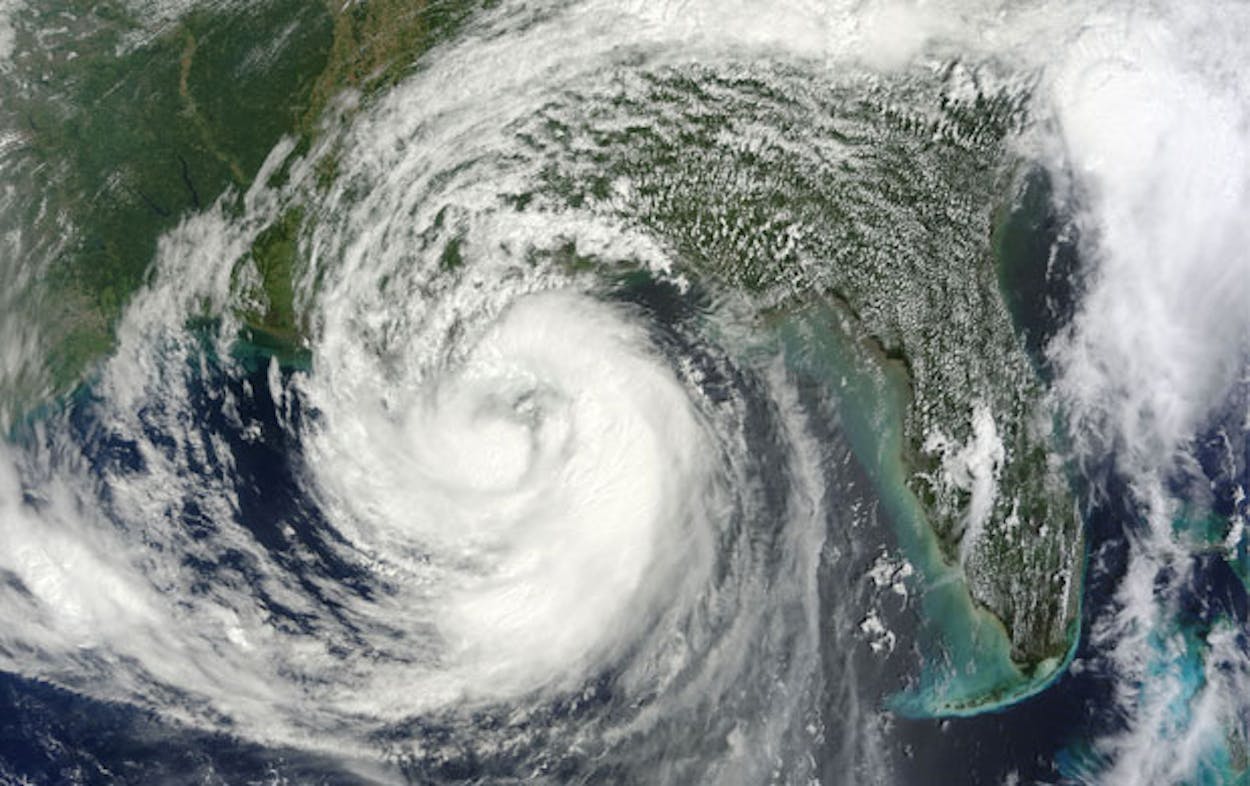The Texas economy is one of the most robust in the world. Wildly profitable companies and ingenious entrepreneurs call this state home, and what happens here influences businesses around the nation. Here’s a slice of the profits, losses, big deals, and backroom decisions happening across
Although Hurricane Isaac did not prove as disruptive to Gulf oil operations as initially expected, some analysts estimate that damages and lost production due to the storm could still cost energy producers as much as $1 billion. Eqecat, a catastrophe risk modeling firm, said those expenses would come from “damage to fixed, floating and underwater assets” including offshore platforms and pipelines, the Houston Chronicle reports. Exxon Mobil, Chevron, BP and other companies are still evaluating the conditions of their offshore rigs and onshore refineries.
The Bottom Line: Isaac had threatened to bring about a spike in oil prices due to increased demand associated with the temporary shutdown of about 95 percent of production in the Gulf. However, according to Reuters, inventories have remained relatively stable, and crude prices and oil futures began to drop off on Wednesday as the storm weakened.
Mobile Money, Mo’ Profits
AT&T is set to unveil its new mobile payment platform — a joint venture with Verizon and T-Mobile — in September after slogging through several months of delays. The mobile wallet service, called Isis, will make it possible for shoppers to make purchases by tapping their smart phones at the checkout counter, Bloomberg reports. Isis will first be introduced in Austin and Salt Lake City next month before expanding to other markets across the country in phases.
The Bottom Line: The popularity of mobile payment systems, which are based on a relatively new technology called near field communication, is poised to grow dramatically in the next few years. Analysts predict the industry will “rise almost fourfold in total volume to more than $1.3 trillion by 2017,” according to Bloomberg. Google and EBay have already entered the fray of mobile wallet service providers.
Crime and Publishment
Three e-book publishers agreed this week to pay $69 million to settle a price-fixing lawsuit filed by Texas Attorney General Greg Abbott and joined by all 50 states and several U.S. territories. According to the Austin Business Journal, “the agreements require Hachette Book Group Inc., HarperCollins Publishers LLC and Simon & Schuster Inc. to modify their product distribution model and refund customers who overpaid for e-books” between April 2010 and May 2012. Abbott expects Texas’ share to be about $5.5 million. The settlement is pending approval in U.S. District Court.
The Bottom Line: The three publishers are also involved in another antitrust lawsuit filed earlier this year over allegations that they, along with two other publishers, colluded with Apple to increase e-book prices when the iPad launched in 2009.
Winner of the Week: Chuy’s
Austin-based Tex-Mex chain Chuy’s is adjusting nicely to life as a public company. On Wednesday, less than two months after its IPO, the company reported “a second-quarter profit of $1.7 million on $43.5 million in revenue compared with a $674,000 profit on $33 million in revenue during the same period last year” — a gain of 157 percent, the Austin Business Journal reports. Plans for eight new locations are in the works.
Loser of the Week: The Smart Grid
An Associated Press feature this week details the clash between Texas residents and utility companies that are attempting to install smart meters —digital home electricity meters gradually being introduced in a nationwide effort to upgrade the energy grid. Companies in the state have installed about 6 million new meters since 2005 and plan to add nearly 1 million more by 2016. Opponents are resisting the devices, which transmit data back to utilities to help avoid grid overloads, because they consider them a form of government intrusion.
To drive this point home, the AP article refers to Texas as “an ultraconservative state that relishes its history as an independent republic” and describes homeowners who have brandished pistols to run utility workers off their property.






